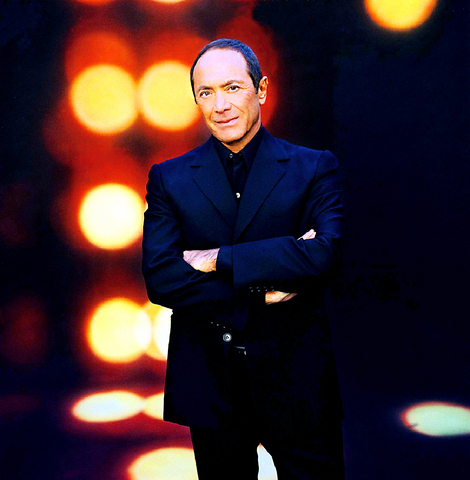You don't have to be a huge fan of Survivor or Van Halen to feel a wave of despair wash over you when you hear that venerable crooner Paul Anka cover Eye of the Tiger and Jump, backed up by the melodious and self-assured strains of big band swing. But Anka shows no shame as he glides through a program of rock and pop covers on his new album Rock Swings, all immaculate tuxedo and brilliantined hair, somehow managing to deprive a song like Eye of the Tiger of whatever artistic merit it might have had. And emasculation is an understatement when referring to his treatment of Nirvana's rock anthem Smells Like Teen Spirit.
But Rock Swings is only the most recent venture in a long career in which Anka has established a massive reputation as both a singer and songwriter, penning such classics as Frank Sinatra's My Way and Tom Jones' She's a Lady. There is no arguing with that kind of record, and Anka continues to enjoy a massive following around the world, not least in Taipei, where he is already filling some of the most expensive concert seats in Taipei for his visit later this month, when Kuang Hong Arts, his local agent, will be charging NT$10,000 for the best seats in the house.
Anka has his roots in the heyday of big band and the infancy of rock and roll. He toured Australia with Buddy Holly, but looking back it is hard to see how songs such as Diana (You and I will be as free/As the birds up in the trees/Oh, please stay by me, Diana) and I'm Just a Lonely Boy could be such hits. But this was back in the late 1950s, tastes were different, and in Anka's long career, he has hardly ever put a foot wrong, shifting the pace away from rock toward the more sedate and well-heeled tastes of the Las Vagas supper clubs, rubbing shoulders with masters of the lounge act Sinatra and Julio Iglesias, and more recently, fellow Canadian Michael Buble.

PHOTO COURTESY OF KUANG HONG ARTS
Whatever we might think of Rock Swings -- and it has certainly received rave reviews from some quarters -- Anka has an indisputable track record of turning out hits, and his stopover in Taipei will be a great event for his fans. He will be playing the National Taiwan University Sports Center on May 23 at 7:30pm. Tickets, priced at NT$2,000 to NT$10,000, are selling fast and are available through ERA ticketing outlets nationwide.

April 28 to May 4 During the Japanese colonial era, a city’s “first” high school typically served Japanese students, while Taiwanese attended the “second” high school. Only in Taichung was this reversed. That’s because when Taichung First High School opened its doors on May 1, 1915 to serve Taiwanese students who were previously barred from secondary education, it was the only high school in town. Former principal Hideo Azukisawa threatened to quit when the government in 1922 attempted to transfer the “first” designation to a new local high school for Japanese students, leading to this unusual situation. Prior to the Taichung First

The Ministry of Education last month proposed a nationwide ban on mobile devices in schools, aiming to curb concerns over student phone addiction. Under the revised regulation, which will take effect in August, teachers and schools will be required to collect mobile devices — including phones, laptops and wearables devices — for safekeeping during school hours, unless they are being used for educational purposes. For Chang Fong-ching (張鳳琴), the ban will have a positive impact. “It’s a good move,” says the professor in the department of

On April 17, Chinese Nationalist Party (KMT) Chairman Eric Chu (朱立倫) launched a bold campaign to revive and revitalize the KMT base by calling for an impromptu rally at the Taipei prosecutor’s offices to protest recent arrests of KMT recall campaigners over allegations of forgery and fraud involving signatures of dead voters. The protest had no time to apply for permits and was illegal, but that played into the sense of opposition grievance at alleged weaponization of the judiciary by the Democratic Progressive Party (DPP) to “annihilate” the opposition parties. Blamed for faltering recall campaigns and faced with a KMT chair

Article 2 of the Additional Articles of the Constitution of the Republic of China (中華民國憲法增修條文) stipulates that upon a vote of no confidence in the premier, the president can dissolve the legislature within 10 days. If the legislature is dissolved, a new legislative election must be held within 60 days, and the legislators’ terms will then be reckoned from that election. Two weeks ago Taipei Mayor Chiang Wan-an (蔣萬安) of the Chinese Nationalist Party (KMT) proposed that the legislature hold a vote of no confidence in the premier and dare the president to dissolve the legislature. The legislature is currently controlled